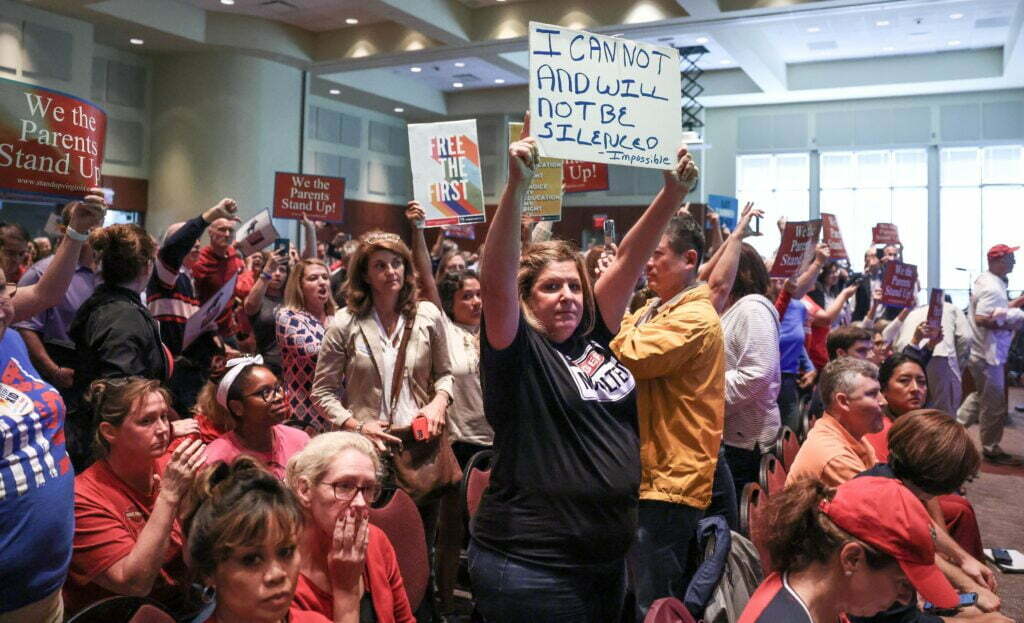United States Attorney General Merrick Garland issued a directive to the FBI to monitor school board meetings to address what is said to be an increasing level of intimidation and violence against educators and administrators.
Garland said in his letter that it is not the Department of Justice’s intent to stifle “spirited debate.” There are two problems with the AG’s order.
First, I know of no precise legal definition of “spirited debate.” As a spokesperson for both the Chicago and Detroit Boards of Education during intense union negotiations and teacher strikes, I have faced crowds of angry parents – the kind of yelling fist-shaking folks you see in the current television reports. I never had the back-up of the FBI. When some of the community activists got a bit too rowdy – or too threatening – they were handled by the local constabulary – much like you see today on the television screens.
So, what constitutes “spirited debate?” Is shouting down the speaker beyond the threshold of “spirited debate?” Or does the use of profanities? Or verbal THREATS of violence? I have endured all of those on occasion – especially when I worked with the Chicago and Detroit Boards of Education — but even the harshest and loudest words never triggered police action. I never really took the threats seriously. I was caught up in violent protests on several other occasions – and the local police dealt with it. I never felt the need for the FBI.
And that is the next point. “Spirited debate” is determined by the sensitivity of the person at whom the shouts and fists are directed. While I let the shouts and threats roll off me like water on a duck’s back, a more timid person may be terrified. And that is the problem.
What Garland is doing is shrinking the legal definition of free speech – limiting it. And because his spirited debate exceptions are arbitrary and situational, any enforcement would be arbitrary. Would such enforcement be more severely deployed against individuals of a specific ideological or racial background – as we see in the dramatic differences in law enforcement in violent demonstrations and riots?
The injection of federal law enforcement is another slippery slope that incrementally limits traditional freedoms and expands the regulatory power of the central government in Washington.
The second problem with Garland’s letter is that it begs the questions: Why is the issue on the federal level at all? What role can the FBI and the DOJ play that the local police, prosecutors and judges cannot? There are no legitimate civil rights issues. School board members are not federal employees.
We have more than enough local and state laws to address those who take up violence or intimidation. Activists who continue to disrupt meetings can be arrested and dragged off – again, as you see in the media reports. Making specific death threats are crimes. Creating a disturbance in front of a public official’s house is a crime. Physically attacking a person is a crime. All of which can be handled by local police.
There is NOTHING that the FBI can do that the local police cannot do – and do do.
One could reasonably argue that the involvement of the FBI may, itself, be a source of intimidation against those engaging in “spirited debate”.
So, there ‘tis.
